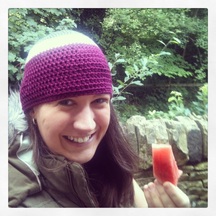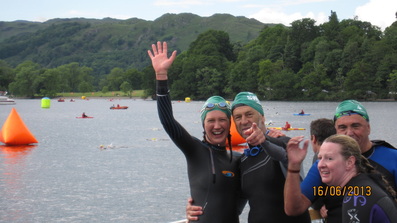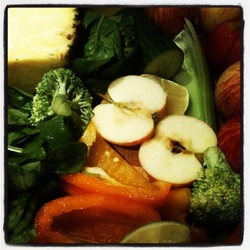Thoughts on the world, homeopathy, mindfulness and food...
A collection of blog posts - feel free to respond with your thoughts and comments - I love to have feedback - thank you!
|
I think this is maybe one that everyone should watch. I do believe children can be more sensitive to many things than us adults, but I don't believe that they're vastly different. Following from the research presented here I think it would be fair to propose that businesses may be more productive, prisons more peaceful and people happier generally. The research here though is around children and party food. Two groups of children were presented with differing foods - one traditional party fare (yellows) and the other a table filled with wholemeal sandwiches, fruits and fresh veggies (blues). They were then encouraged to play party games and observed during this process. Rating 6 behaviours on severity scales gave dramatic results. To share a few here: The healthy food group showed no incidents of 'mean' behaviour, 8 of physical aggression and 30 of hyperactivity - in total with the other assessed areas, 120 incidents of 'bad' behaviour. In comparison, the party food group showed 69 incidents of 'mean' behaviour, 63 of physical aggression, 163 of hyperactivity and, again, in total with the other areas, 720 incidents of 'bad' behaviour. I'm struggling a little with the terminology but that be said, the figures are incredibly illuminating. It was noted that the healthy food group did “48% better in the games overall”. This is clearly not an insignificant difference. But without further talk from me - please have a watch. The Food Hospital on Channel Four Investigates Party Food. Conclusions are not firmly given - is it the additives or is it the lack of nutrients? In my view, it also has to relate to individual susceptibility. However whatever the reason, the results are in. Traditional party food swapped for a more whole food approach appears to promote better concentration, more amenable play and calmer children who can co-operate better. The implications of this could be far reaching.
0 Comments
 I just discovered it's World Diabetes Day today. I wasn't entirely sure what the purpose of it was so googled it and found the International Diabetes Federation with a picture of lots of people and emblazoned across them the slogan 'Let's Celebrate'. Which seemed, at least to me, to be a little odd. Let's celebrate that we are experiencing unprecedented growth in a serious condition? Let's celebrate that due to the number of children getting diabetes the label 'Adult Onset Diabetes' has been dropped and now is called Type 2 Diabetes? So I looked further and found the following 4 key messages of the 2013 campaign:
'There is substantial evidence that achieving a healthy body weight and moderate physical activity can help prevent the development of type 2 diabetes. In primary prevention there is an important role for the diabetes educator to help people understand the risks and set realistic goals to improve health. IDF recommends a goal of at least 30 minutes of daily exercise, such as brisk walking, swimming, cycling or dancing. Regular walking for at least 30 minutes per day, for example, has been shown to reduce the risk of type 2 diabetes by 35-40%.' But it still felt pretty woolly to me. What if though there was a way to reverse Type 2 diabetes and to never get it in the first place? Would you want to know about that? If it was of no greater cost than your usual shopping bill, of no greater hassle than simply cooking your meals? And surely you'd want the International Diabetes Federation to tell you about it? I would anyway. I'd want them to be shouting it from the roof tops. And, not that I want to fly in the face of medical convention (well OK I'm alright about that really I suppose) - what if there was a way that someone with Type 1 diabetes could be no longer reliant on insulin? Surely that would make front page news?? It seems not. But research would suggest that there is a way. There is study after study demonstrating that patients with Type 2 diabetes who are dependent on insulin can relieve that dependency by the simple adoption of a whole food, plant based diet. I have read studies of Type 1 diabetes been affected positively and have heard of several people becoming no longer insulin dependent. Not everyone - although nearly everyone was able to significantly reduce their insulin dose. And why are the IDF not stood on the rooftops? I can only imagine that the influence of the food industry is too huge. And so I suggest people could take it into their own hands, take back control of their own health and be your own doctor. Use the diagnostic skills that you need to use - work under the guidance of your doctor but try out eating plant based, minimal oils and whole foods. It might well surprise you more than you'd ever expected. I do want to stress that last point again. Do work with the guidance of your doctor. Changes can be fast and it's important to be aware of your blood sugar levels so you're acting appropriately with medication that you may already be taking.  You never, ever know where it might lead you. About 20 months ago my good friend Amber asked me if I'd like to do the Great North Swim. Well, knowing that there's THINGS that live in Windermere, knowing full well it's not hot (no volcanic springs in the Lake District apparently) then I thought I knew the answer. Going to bed and asking to dream about the right thing to do left me with further knowing the next morning. I'd dreamt about me standing on the bank, holding her children's hands and watching her swim in. That was enough for me. So I did the sensible thing and said no. But then she asked again. And by that point I'd decided to get on with life, say yes to new and unusual possibilities. So it was harder to say no, and I didn't. I got on and joined our local triathlon club and started training in a local lake. Which was a challenge in itself. It was cold, there were fish (sometimes you'd even see a dead one) and it was murky water. Plus I was being told what to do. Which I'm not very good with! Anyway to cut a long story short I did a mile swim with Amber and raised £500 or so for Homeopathy for Health in Africa. Having joined the Triathlon club I continued to train with them throughout 2012 and watched the Olympic Women's Tri with them. Our chairman recommended Chrissie Wellington's autobiography which I duly read, then went on to read more Tri texts finally chancing upon Scott Jurek's Eat and Run. Which I would say changed my life. I went on as a result of that to adopt a Whole Food, Plant Based (WFPB) diet, study a diploma in Nutrition as well as look further at WFPB eating, and in the end adopted a raw vegan diet for myself (which I love!). So I dare you - you never know where it might take you... Enjoy the ride!  I like the idea that we can be responsible for our own health. Even if only a little bit. We can make choices – organic or standard, veggie or meat, to enquire further or to accept what we’re told. One of the issues with the conventional medical model is that some of that can appear to have been taken away from us. We’re part of a procession to be prodded, poked, cut and healed in someone else’s way. I’m not saying this is wrong, or to go against convention, but to take some power back too along the way. There are choices we can make that can enhance our health. We can support ourselves with listening therapies, taking time out for a massage to complement our wellbeing, or even make simple food choices. I’m here today to talk a bit about food. It’s something we’re all deeply involved in – and can be used to help our bodies help themselves. We can set up a situation where we’re able to assist in providing healthy conditions for healing to happen. I don’t believe that nutrition heals, chemotherapy heals or homeopathy heals. Our bodies heal themselves – and what we can do is help to provide the basis for them to do this from. I decided to switch my diet earlier this year to a whole food, plant based, nearly 100% raw food diet – really as a bit of an experiment, but also with the knowing that if I had been given a serious diagnosis of illness this is the way that I would eat. I’m not going to suggest that everyone goes 100% raw – although it can be a great way to eat. However there is increasing and strong evidence around animal based foods causing detriment to our health. My personal belief is that no one should be consuming milk (known to contain an incredibly potent cancer promoter), eggs (coming in about second behind milk), meat or fish if they’d like to improve their health in one quick and easy step. Studies around animal based proteins have shown that consuming more than 10% of your diet from animal based proteins, the risks of cancer greatly increases. Reverting back to less than this, or ideally cutting it out altogether, has often helped with reducing tumours. Eating at less than 10% for research animals, usually showed no development of cancer growths, even with exposure to known carcinogens. The adoption of a whole food, plant based diet has been shown in many instances to improve health, reduce risks or relapse and has knock on health benefits – such as reducing risks of heart disease, stroke, obesity, diabetes and certain autoimmune illnesses. Whole food, plant based? It means no processed (or minimally processed) foods, and from plants. It might sound initially as if it will be restrictive, but realisitically you’re talking about enhancing the one thing that you really need. So even if there is a small sacrifice – and I know just how addictive cheese can be! – it’s potentially a big gain. And ultimately as you discover more you find out just how much choice there really is. My parents have adopted this way of eating and eat more varied meals with more choice than they ever have. Granted, eating out is slightly harder but learning to ask for what you want really helps along the journey. It doesn’t have to be all raw. It doesn’t have to be raw at all – although I would suggest that you did incorporate more raw foods into your diet. To make gradual changes – depending on your state of health – and cut things out at a manageable rate. Mum, for example got rid of milk one month, cheese the next, overt butter the following one and covert milk products after that. Whilst you’re removing things, remember to add them in. The UK suggests we all eat our 5 a day. I like the Japanese suggestion better – the 17 a day campaign. Japan suggests people eat 13 portions of vegetables and 4 of fruit a day. I probably average around 17-20. So add in an extra fruit snack, more steamed vegetables with your dinner, a big salad at lunch and see how easy it can be to get towards 17 instead of our measly recommended 5 portions. There’s some brilliant resources out there – it’s great to discover more around the why – I always think anyway. So if you’re a reader then The China Study is a brilliant place to start. If you cook then The China Study Cookbook is fantastic. Forks over Knives (the film, cookbook and book) is worth a mention, as are the books by the Gerson’s around cancer and their work with nutrition. The web is a fabulous resource to have at our finger tips – and I also give recipes, thoughts, tips and more on my blog and within the website under the nutrition tab. I also have a newsletter which you can sign up to and share information on my facebook business page as well as on twitter. Feel free to get in touch to find out more. I love my work with Homeopathy, Food Intolerance testing and supporting clients to eat a more Whole Food, Plant Based diet and do offer free 15 minute consultations to discover a little more.  I had a brilliant consultation with a client the other day where we talked about making food changes to support her health and the reasons behind it. I've been thinking this for a long time but it was her that put into words how important it was for her to do it from a place of love. Important may not even be the right word, essential doesn't quite fit either as I guess you can make changes from whatever place you wish to. Changes from a place of fear feels very different from that loving place though. I think everything is longer lasting, deeper, more real when performed from a place of love. Changes are more congruent, easier to maintain and happier to take part in. That doesn't always mean it's easier, but more real works well for me. Getting back to who I really am, who I always was, not who I'd got a little bit lost being. Taking the time to discover that place of love may, well, take time. But I would wager, time well spent. Probably the most worthwhile time to spend right now. Because what will give us joy and excitement is living our purpose, wholeheartedly and with love. I think on it's deepest level, homeopathy has the power to enable that process, to assist with living in the now, being as whole as possible on every level. Mindfulness too - looking within with assistance to guide and enable the most amazing discovery process. And sometimes too we can do it ourselves, we can learn to listen to the whispers, the bubbling joy (I remember in some of my darkest times feeling that I was overflowing with joy - just moments, but still valuable pointers that I was on the right path despite of the distance I had to walk to get through), and also to the disquieting feelings. Listen and be aware. To be true to what is, here and now, right in front of you and to let go of the 'what if's, 'what might have been's that can only ever stop you from really experiencing the beauty of this moment. For all we have is right now. I invite you to, with love, gently let go of that which doesn't serve you and embrace that which fills you with love, passion and excitement for the pure joy of life. With unbounded love, Em x With my involvement in the “Inspire” Pilates Bootcamp, alongside conversations over the weekend, and my gradual journey into a plant based way of life, I’ve thought a lot recently about fish.
As with everything, there’s lots of opinions out there. Whether they are ethical, moral, health related or emotionally linked, it seems everyone has something to say. And deciding what makes the most sense seems to be the most challenging bit. For me, the health issue was the highlight. I’d always been aware that it was killing another creature and yet I could put this to the back of my mind as I tucked into swordfish, fresh tuna steak, lobster (only on the very rare occasion and possibly only at The Mandarin Oriental in Bangkok). I’ve said before that it was Scott Jurek (American ultrarunner) who started my journey and awareness into plant based eating when he talked about how he felt fitter, recovered faster and trained harder whilst following this lifestyle. The very fact that an athlete could improve upon his athletic performance made me wonder whether I could improve my own health by making subtle shifts. Colin Campbell (author of The China Study and passionate researcher around the effects of animal based protein on the human state of health says: ‘Some people may have heard that fish are good sources of essential fatty acids. However, the high amounts of fat and cholesterol and the lack of fiber make fish a poor choice. Fish are also often high in mercury and other environmental toxins that have no place in an optimal diet. Fish oils have been popularized as an aid against everything from heart problems to arthritis. The bad news about fish oils is that omega-3s in fish oils are highly unstable molecules that tend to decompose and, in the process, unleash dangerous free radicals. Research has shown that omega-3s are found in a more stable form in vegetables, fruits, and beans.’ Dr Caldwell Esselstyn Jr adds to this in an interview around his diet to prevent and reverse heart disease ‘Fish oil is not essential. Fish get their omega 3 from plants. It is difficult to be deficient in Omega 3 if eating 1-2 tablespoons of flax seed meal or chia seeds and green leafy vegetables at several meals. There is also research that suggests that those on plant based nutrition become highly efficient in their own manufacture of omega 3. Patients on fish oil are also at increased risk for bleeding.’ My own view is that farmed fish is rich in antibiotics due to the disease ridden climate they are existing in up until they are killed, the additives (such as the dye in salmon to make it appear as the wild variety naturally is) and the high rates of illness combined with the reasons above are enough to make me think I am less eager to consume it. The often quoted benefits of fish can be achieved easily through a diet rich in plant based foods and these individuals will not lack the essential nutrients that fish too are able to give to us. The bonus side is that plant based omega 3 intake comes without a list of side effects. I always find a new month a great time to set a new challenge. For some reason I like the mathematical beginning. To start at 1 and work onwards works for me.
Gradually I've been letting go of things that aren't useful to me - milk and other dairy products, cooked, processed foods, gluten, alcohol (most of the time - I have to admit to being partial to the occasional glass of bubbles...), and it's come to my attention that salt has to be the next to go. I've always loved salt and it's been a part of the food I eat. Not much of it but chips, eggs and avocado... Or vegetable crisps. I find it incredibly more-ish, addictive and enjoyable. And whilst I'm really not against enjoyment - at all - I don't like addictive. So now's the time to break the habit. For me sharing that makes it more likely to happen... so here's my November challenge for myself. A no-salt month. Letting go has been liberating, energy enhancing and generally fabulous for me. Loving the freedom and looking forward to embracing my salt-free simplicity soon! Anyone care to play out too? |
AuthorI'm a Homeopath working in the Skipton (North Yorkshire) area. I am also able to offer food intolerance testing using Kinesiology and advice around diet and lifestyle. |
|
07734 861297
[email protected] Em Colley Homeopath Practitioner of Classical Homeopathy BSc(Hons) Psychology and Neuroscience Laughter Yoga Leader Focussed Mindfulness Practitioner |